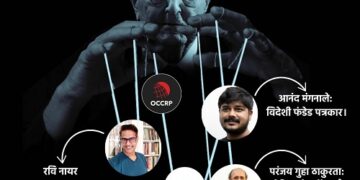The unpredictability of the ongoing pandemic has created uncertainty in every aspect of life and students particularly have gone through unprecedented upheavals in the past few years. As the pandemic related restrictions ease and schools and colleges reopen, students are expected to dive right into the old normal after a little over two years of online learning. Now acute stress has been added to the situation with multiple universities displaying an indecisive attitude regarding the examination mode and whether it should be online or offline.
Rajesh Bhatia, an educationist and founder of TreeHouse, an online and offline chain of playschools, thinks this situation could have been avoided and asks, “Why put students through needless stress when we already have an examination system that triggers massive anxiety among students. I recently read a newspaper report that said that we lost 12,582 lives to examination stress between 2014 and 2020. The current indecisiveness of universities about whether examinations are to be held online or offline, has not helped at all. The education system must become more responsive to the needs of students during the pandemic.”
He also thinks parents and educators need to be more vigilant during this time to observe signs of stress, anxiety and says, “We absolutely need newer, kinder methods of evaluation but right now, let us please focus on the mental health of students and watch out for signs of stress like panic attacks, sleeplessness, hyperactivity, lack of motivation, aches and pains, upset stomach, mood swings and depression. Counselling and therapy must be normalised especially when not all parents are equipped to provide urgent solutions for a mental health crisis.”
He also wants students to not internalise examination stress and says, “Yes, the pressure to excel is inordinate but please don’t believe any big or small failure is permanent. Every day, we all get a brand new chance to learn from our mistakes and do better. If you feel you are not ready for an offline examination, attempt writing exercises and time yourself. Sleep and eat on time, add a little physical activity to your routine and learn a few breathing exercises. And remember to always reach out to a trusted friend or a family member when you are feeling too anxious. You are not alone even when you feel isolated and overwhelmed.”
Bhatia also hopes schools and universities will start offline modules to slowly ease students back into conventional modes of learning and also offer them hybrid options to choose from. As he says, “We are now living in a world where education systems cannot be rigid and must be flexible. The pandemic has given us an opportunity to change outdated methods of teaching and we must adapt to the times. We cannot just discuss how broken our systems are, we must fix them for the sake of each and every student regardless of their economic and social background.”





































